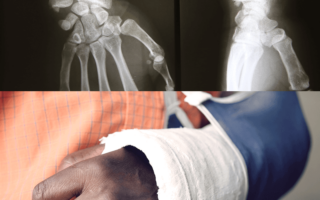When to Return to Work After Workers’ Compensation Claim
<style=”text-align: center;”>
In Arkansas, most injured workers are protected by workers’ compensation laws. These laws provide insurance in the event they are injured on the job. This insurance covers all related medical expenses, as well as portion of their lost wages and future disability. Injured workers can collect these benefits without being required to proving fault or negligence.
While this may seem like an easy, cut and dry process, it is not. Injured workers often have to wade through red tape and difficulties, even when they have legitimate claims. It can be tricky to determine how much compensation you are eligible to receive and sometimes claims are unfairly denied. Even worse, injured workers may be pressured to return to work before they are ready, further complicating matters.
Workers Comp Return to Work Policy
Every on-the-job injury is unique, and every situation is different. There are no right or wrong answers on when you can return to work; however, there are some guidelines. In general, it’s important not to return to work too soon because that could jeopardize your claim. Returning before you are able could result in you being unable to adequately perform your job, which could lead to your employer firing you or letting you go. This would result in you being unable to receive temporary total disability benefits under workers’ compensation.
Before returning to work, injured workers should:
- Recover to full health
- Have a doctor’s full permission to return to work
- Entertain a trial period with your employer
- Have doctor outline the limitations of your return to work if any
- Discuss any reasonable accommodations with your employer
Check Your Employer’s Return to Work Policy
Employers have differing Return to Work policies. Therefore, check with your employer regarding their Return to Work policy and how it could affect you. However, an employer’s Return to Work policy cannot supersede or modify rights and benefits afforded to injured individuals through the Americans with Disabilities Act or Family and Medical Leave Act.
Examples of what might be found in your employer’s’ Return to Work policy include the definition and detail of transitional work afforded to help reduce time missed from work. Most businesses will attempt to make some forms of transitional work available to injured workers. However, they’re not obligated to offer a transitional employment position. The physical requirements will be developed in consideration of the worker’s abilities and limitations. Before accepting this position, injured workers must obtain a “Release to Return to Work” form and a completed “Job Description” form. Most companies will not allow a worker to return to a temporary or transitional position without a release from their attending physician.
Can You Be Fired After Being Injured at Work?
While it is against the law to fire you for being on workers’ compensation, the truth of the matter is that there are dozens of other “legal” reasons why your employer could terminate your position while you are recovering. Your employer would never admit that the reason they are firing you is because you applied for workers’ compensation or have been injured on the job. That is considered retaliatory termination and it is against the law. Instead, they will say that they are downsizing or that your position is no longer required in the same way. Perhaps they will say they’re restructuring the company or your department or that you were being fired for poor work performance.
Sadly, you may lose your job after you’ve been injured at work, especially if that injury has resulted in a disability that would make it impossible for you to continue to perform your job adequately. If you can still do your job, however, with some reasonable accommodations, then your employer is not allowed to fire you because of your disability. That would be in direct violation of the Americans with Disabilities Act and that is workplace discrimination.
The good news is that even if you lose your job because of your injury, you are still eligible to receive workers’ compensation benefits. Those benefits will not end until you have reached Maximum Medical Improvement. You also cannot be turned down as an employee for filing past workers’ compensation claims.
Many individuals fear being fired from their jobs because of an on-the-job injury. You should always take advantage of your workers’ compensation benefits and obtain the help you need after an injury. If you do believe that you have been fired or terminated because of a workers’ compensation claim contact an experienced attorney immediately.
The workers’ compensation process is a difficult and often lengthy one. Frustrated employees and employers may make mistakes when it comes to returning to work. You may feel pressured to go back to work too soon out of fear you may lose your job or become demoted. An experienced workers’ compensation attorney can protect your rights while you are injured.
We’re There When You Need Us
If you’ve been injured in an on-the-job accident in Arkansas, we can help. With eight offices in —Little Rock, Little Rock – Corporate Hill, Springdale, Conway, Bryant, and Hot Springs, Jacksonville and Memphis, TN our workers’ compensation lawyers are right where you need us from the moment you are injured. Contact Rainwater, Holt & Sexton Workers’ Compensation Lawyers today. Fill out a free contact request form, which only takes a minute, or simply dial (800) 434-4800 and we can get to work for you.

















